“Filmmakers of NE have a huge responsibility...”
Filmmaker Tiakumzuk Aier’s maiden film captures the extravaganzas during elections in Nagaland and its impact…
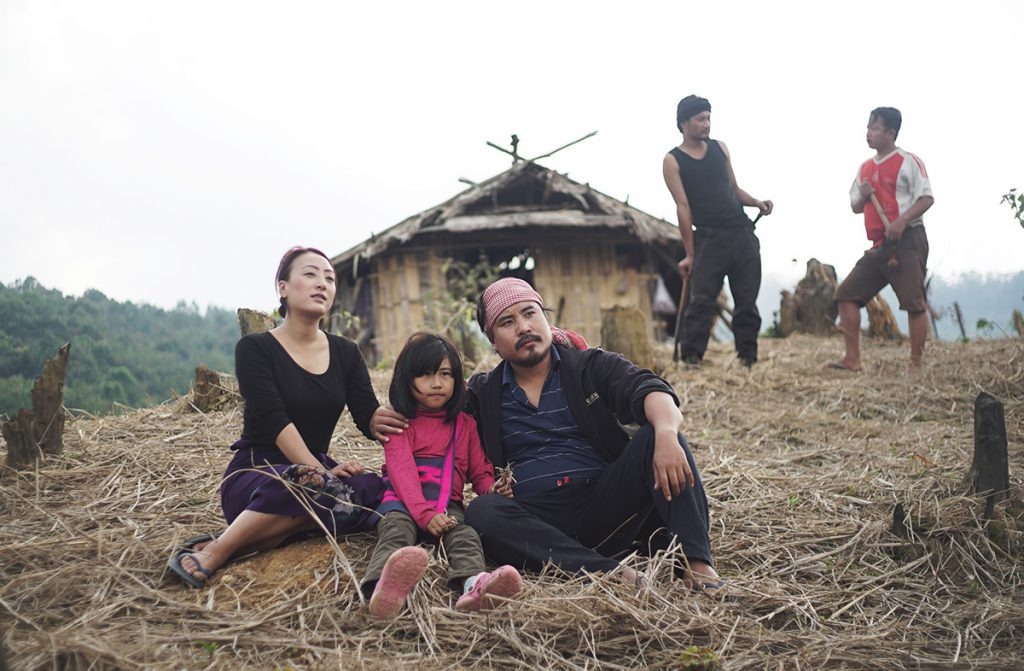
Honing a passion for the glittering world of film is a bold step in itself for many like Tiakumzuk Aier -- who grew up in the commercial albeit rugged town of Dimapur, Nagaland. Even as late as in the 80’s, the state did not have any movie theatres. Movie buffs like Aier were then left with no choice but to be glued to their television sets -- eagerly awaiting movies to be telecasted on Doordarshan - the only entertainment cable channel in those years.
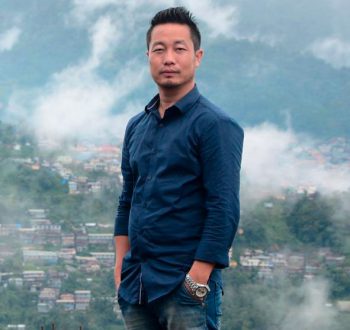
Tiakumzük Aier’s body of works highlight social issues and carries strong messages
One can then wonder whether his upbringing trained him to succeed by utilising and maximising every last bit of the limited resources on hand. We do know that the soft-spoken 30-plus, is self-taught in the art of filmmaking so one thing is for sure - there is no doubt that Tiakumzuk is a natural at what he does. An upbringing in his conditions did not deter him from doing what most are unable to do even after years of exposure and formal training. In a tale of true passion fit for a movie script, Tiakumzuk Aier went from a simple boy with a love for movies to an award-winning director who is changing the reach of cinema in Nagaland.
His first original directorial debut feature film, Nana - A Tale of Us, won The Golden Calton Best Director Award at Edinburgh Festival of Indian Films and Documentaries, Edinburgh, Scotland (2017). The film was also screened at Kolkata International Film Festival (2018) and Brahmaputra Valley Film Festival ( 2019). He also started his own production company Dreamz Unlimited.
Several plays and a number of short films and videos written by Aier centre around social issues. As most of his work reflects, Tiakumzük is inspired and motivated by a need for effecting change in society through the arts. His production company is versatile and caters to a wide audience - - pulling in loyal viewers of all ages. Comedy skits are an especially huge hit among the staggering 434K YouTube subscribers of Dreamz Unlimited.
Aier tells Ninglun Hanghal about his films and the significance of film making in Nagaland
How does it feels to be recognized and acknowledged as Best Director ( The Golden Calton Best Director Award at Edinburgh Festival of Indian Films and Documentaries, Edinburgh, Scotland)?
Yea… it feels nice - although nice does not fully express what I am feeling. I did not expect it at all. To be very honest, I never thought that my film (Nana – a tale of us) would go out of Nagaland- forget India! I didn’t even know it was in any competitive category - I attended on an invitation. On the last day of the film festival, they announced the awards and I simply went to receive the award!
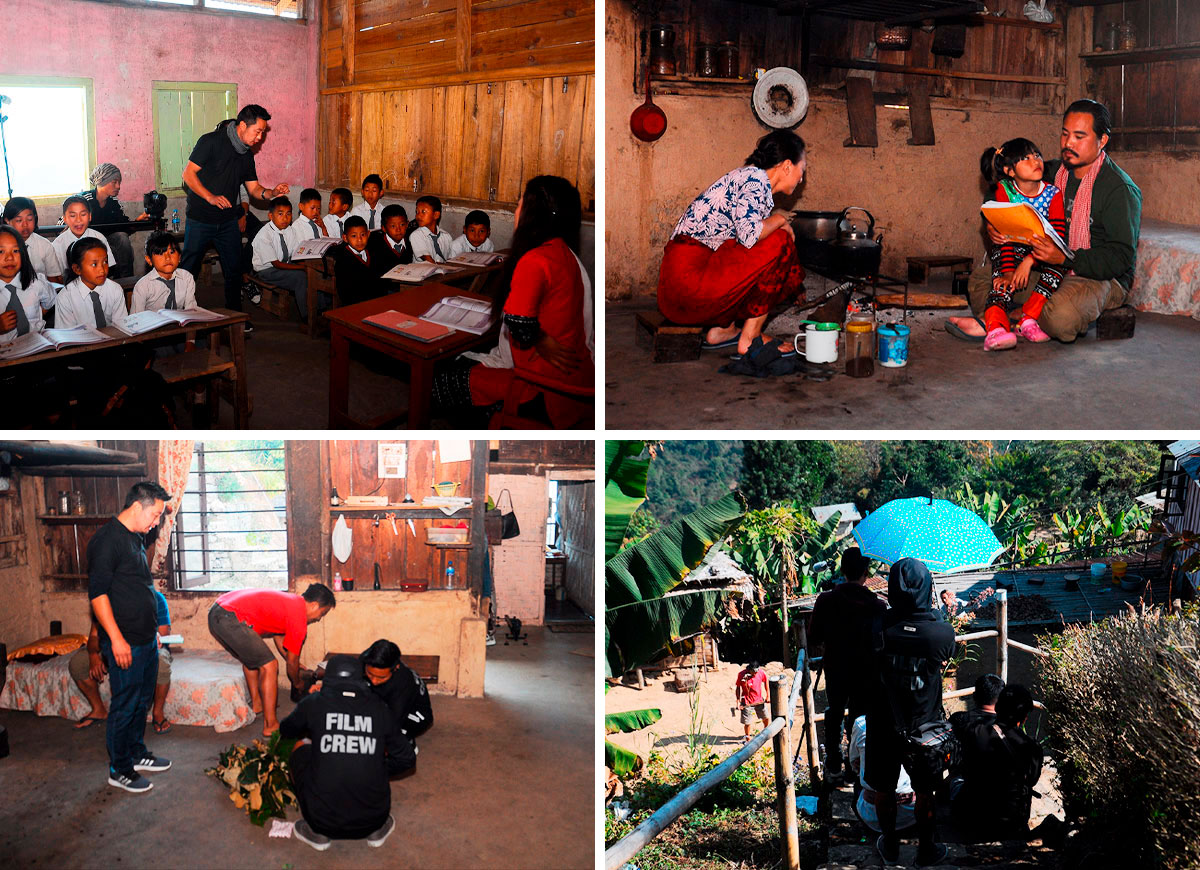
What is Nana- a tale of us about? What are the central theme and message you wished to relay through the film?
Nana- a tale of us centres around the extravaganzas during elections, be it state or general elections, in Nagaland. It is about how everyone, rural or urban, is impacted by it - whether directly or indirectly. The movie explores these many things that are not usually said or talked about out loud. My connection to this subject is also a product of the message of the movie - that it concerns all our people. The movie talks about vital issues from the layman's perspective rather than the politician's - specifically so that the impact of such elections on the public is highlighted. It is not a political drama - but a story of common people.
Is Nana your first breakthrough film? Can we call it a blockbuster in Nagaland?
Nana- a tale of us is my first original script. My earlier films were adaptations - and they were mostly made into a kind of home movie. These were adapted in the Ao language, whereas Nana is in Nagamese.
I daresay - yes, it is a breakthrough movie since it was able to go out of Nagaland. It was a success - not in terms of sales, but in terms of reach. It is a huge encouragement for me and for my team. As I said, my earlier films were adaptations circulated only within the state. Being in the Ao language, it had a limited audience. However, NaNa is in Nagamese so it has a wider reach. Also, the success of NaNa can be credited to the team work involved - Limatula Nungshi wrote the story,
I wrote the screenplay and dialogue, and it was produced in-house at my studio Dreamz Unlimited.
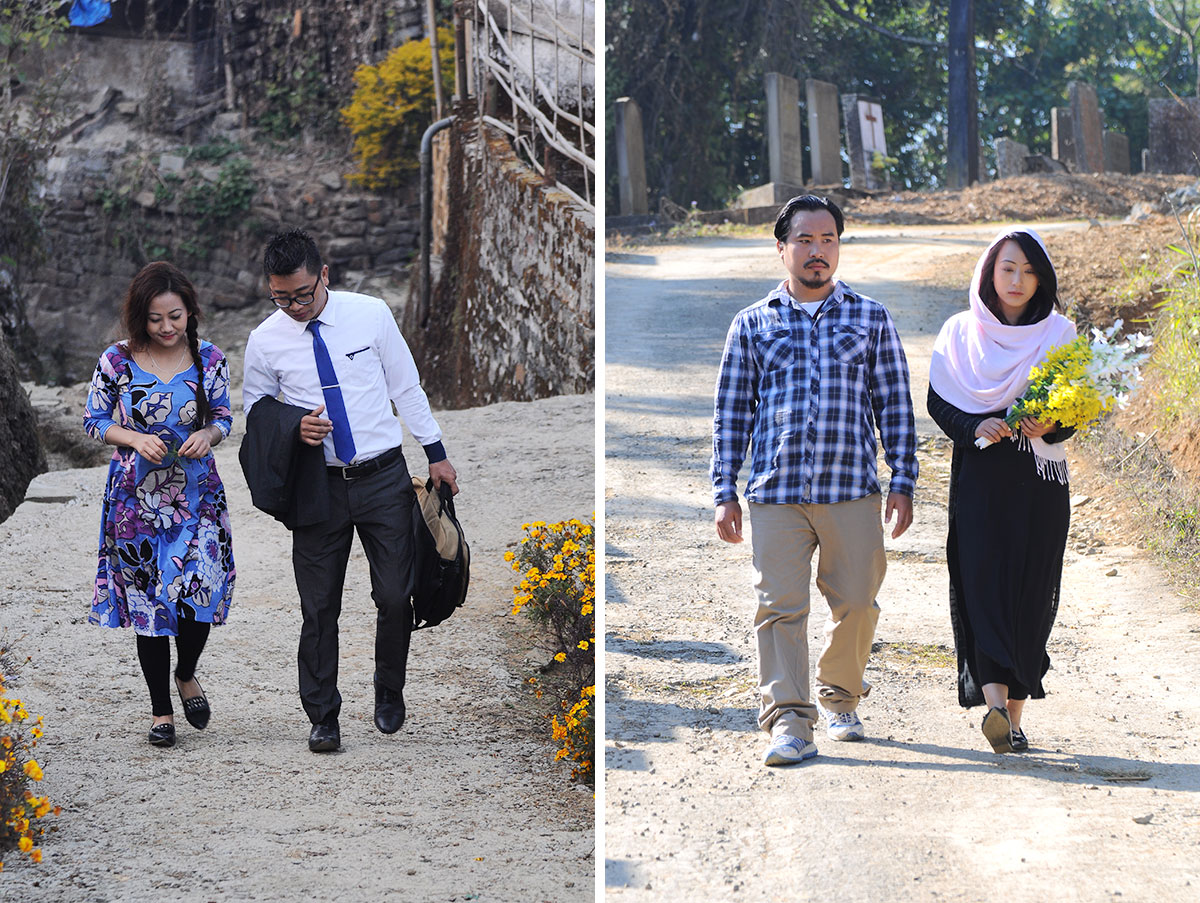
How did Dreamz Unlimited come about ? Tell us about the company.
TA- I was in theatre before - not as an actor, but as part of the team. I used to take part in workshops and discussions. A few of us friends from the theatre workshops got together and started the company in order to begin in-house productions. It has now been over 10 years since we formed the company. Dreamz Unlimited was a labour of the love of a close group - with even my own brother chipping in. Initially, it was just a drama and theatre group. It eventually progressed into film making.
Is cinema quite popular in Nagaland? Do you prefer Hollywood or Bollywood?
I watch a lot of movies- both Hollywood and Bollywood! Generally speaking, local, domestic and international movies are popular in Nagaland.
Tell us more about your earlier years as a cinema lover
TA- I grew up watching movies on Doordarshan. Even though I have been interested in cinema since my younger days, there was no one to guide me further. In a state like Nagaland, as you might be aware, not much is being done in the aspect of film-making. There were no theatres or cinema halls, - let alone a film-making industry. Here, film-making is not considered as a profession or a career option.
Things are changing now and cinema is slowly picking up. The younger generation is less afraid to go down the path of making a career in film - with many of them even enrolling at film schools.
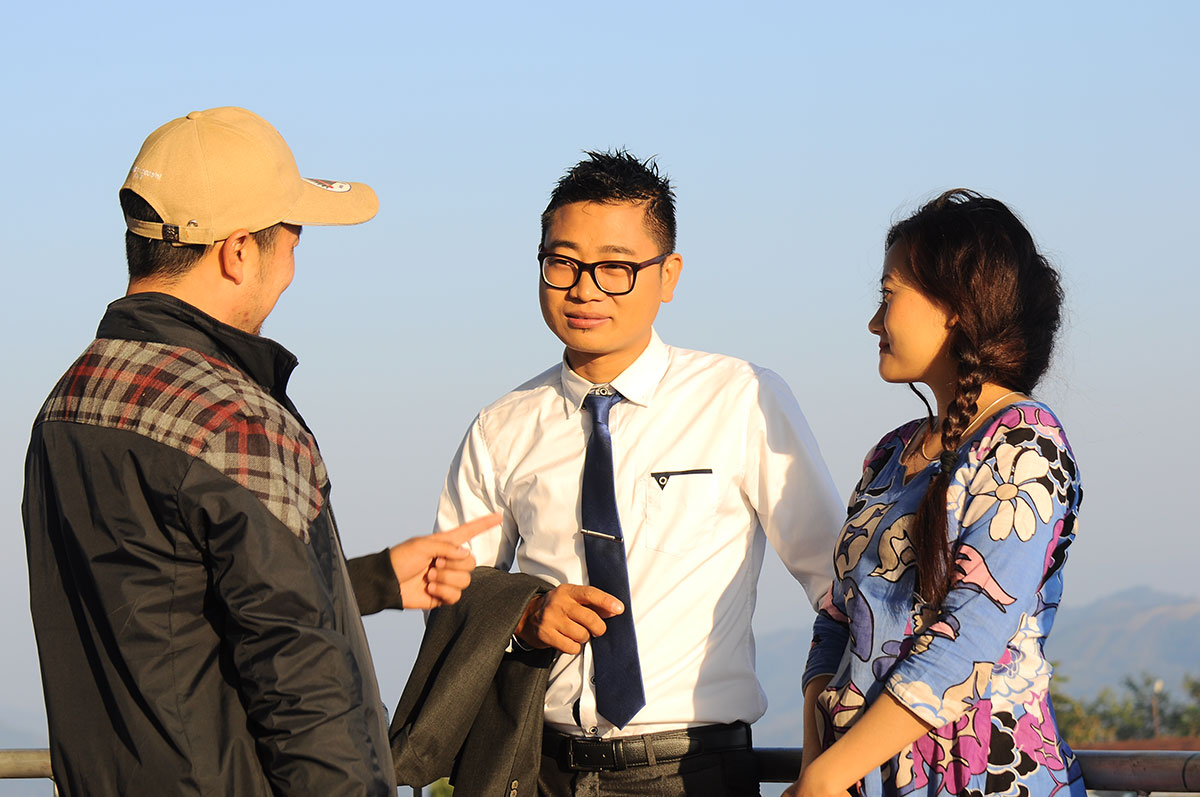
As you said - you are self-taught or self- made. Does this come as a limitation? For instance, what are the challenges you come across in terms of the technical aspects?
There are many things I still need to learn about film-making. Be it technical or be it the art of storytelling - it is an unending process of learning for everyone, and I, too, am still learning.
As a storyteller, whose target is to bring out strong social messages, why did you choose film making as a tool?
I do feel that films are extremely powerful. It reaches a wider audience than, say, theatre or print media.
How did the story of Nana come about?
TA- The story is not written by one single person. I was not alone in choosing the central theme. Nana was produced by our Church (Aoyimti Baptist Church – Youth Ministry), and our team at Dreamz Unlimited began to weave together the plot. After 3 or 4 drafts, the final story for Nana – a tale of us came up.
The film is set in rural Nagaland. It centres around a family - Malay, Ano, and their young daughter Nana, who are caught up in a whirlpool of events - some within their control and some beyond their grasp.
With the backdrop of simple village life unfolds the grim story of elections in Nagaland - one where politicians and their supporters control people’s lives through intimidation, muscle power and money power. Nana and her parents too were caught in this chaos. The climax of the movie occurs when Nana contracts Dengue fever - which eventually takes her life. This is when events spiral out of control for the family - forcing Malay and Thiru to reflect on the path they had taken, and their resolution to seek a new one.
The film is not about any magical solution to the problem of elections and corruption, but rather, it captures the plight of ordinary citizens who are caught in the web of things.
Are you working on any new films - perhaps dealing with another social subject? Especially since expectations after the success of Nana will be high...
Yes. I am currently working on a script. After Nana, I wanted to work immediately but I was caught up with other things. Finally, I am starting again now - and this time too, the story will deal with a social issue. I cannot reveal much of the project as it is still at an initial stage. Perhaps, as soon as the script is ready, I will start putting things together and hopefully, we can begin shooting once the pandemic is over. That is the plan as of now.
What is the key to the unique factor of your films, your style, and your storytelling? What are some of the inherent skills or techniques you use for making a film?
Telling a story just for the sake of telling it, and for the fun of it, is one thing. What I like to do is channel this fun element with a social message. It makes a bigger impact.
I do not want to make movies for entertainment alone, nor do I want to make it boring. The element of a social message amongst these guidelines is also vital - and that is my style.
I have learned a lot along the way - such as the nuances of how to tell a story, how to connect with an audience, how to bring out a good story, how to carry forward the story and so on. They form the basis of the general techniques I have employed throughout.
There are many stories from this region that are worth telling, but not much of substance has been able to penetrate our borders. Will cinema be the right medium to make our stories heard outside the region?
Yes, cinema is a powerful medium. It has brought out a lot of issues to the mainstream. There are definitely many things people don't know that can be communicated through cinema, or through any other work of art - that will facilitate people outside the NE to get to know us better.
And in this, filmmakers have a big responsibility in fine-tuning our stories so others of the outside world may understand them better.
What are some of the main challenges for a film maker in Nagaland or north-east states in general?
TA- Infrastructure is one thing - but personally, resources in terms of finance are most crucial. There is not much of a difference between a good infrastructure and a good budget. We need not buy all the equipment. If filmmakers have a good budget, they can always hire equipment. We can hire a good camera; we can even go to cities like Mumbai for post-filming editing work for sound, color creating etc. Closer to home, Guwahati now has a reasonable infrastructure.
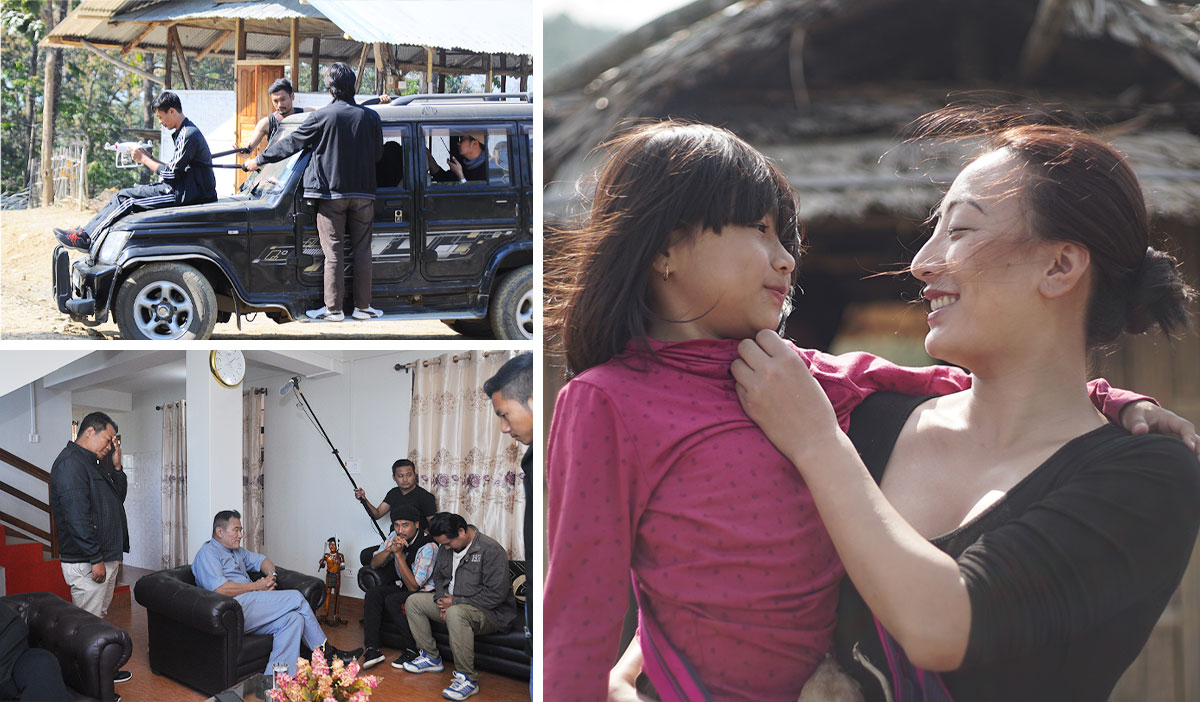
So how did you manage your finances till now?
This is where the Dreamz Unlimited comes in as a production company, in my case. The production company is taking care of the budget. We have our own editing studio and camera. We do hire some of the other requirements we need.
And what of the marketing? What is the scope in Nagaland or NE at large? How do you generate the revenue return?
That is the tricky part. For instance, Nana-a tale of us was released in DVD, and these DVDs were sold all over Nagaland. But today, things have changed and DVDs will not work anymore. The marketing of any film will depend on current trends.
So, what are the your other options now? Perhaps, a release on Netflix?
TA- The most glaring option is definitely Apps. My options are the local apps for generating some income. Yes, streaming services such as Netflix and Amazon Prime are popular but the problem remains whether they will be willing to buy our (Northeast) movies? We have to come up to their standard. They have their own specific criteria, and according to it, the movie has to be good enough for them to buy!
We already have a YouTube channel - which is one of the biggest in Nagaland at the moment. We have over 400K subscribers - only a few other channels in the region have ever come around this number. This YouTube channel is enough for promotions at the moment. Our strategy is to put up trailers, and if people like it, they will definitely watch the movie.
Considering that the actor of Nana- a tale of us, contributed in the success of the film, what scope do actors/actresses of Nagaland have in the state?
The main protagonist in Nana- a tale of us, Zhokhoi Chüzho, has acted in the Bollywood film Happy Phirr Bhag Jayegi. He has also acted in a south Indian film Little Boy. The female protagonist Mengu Suokhrie, has experience in a number of video albums, besides acting in a few short films. Otherwise, the rest of them are not professional actors - but they have talent that is natural and inborn. Some are really good even without any formal training. For most of the actors and actresses, including the child protagonist, it was their first time acting for the screen!
Only if more films come up in the state will there will be scope for tapping the potential of these natural performers. The problem is a lack of big commercial films as not many are ready to invest in films.
We have already organized two film festivals in Kohima. The response was good! So I think there is some progress - although it is still slow.

Story Partner: Media9

